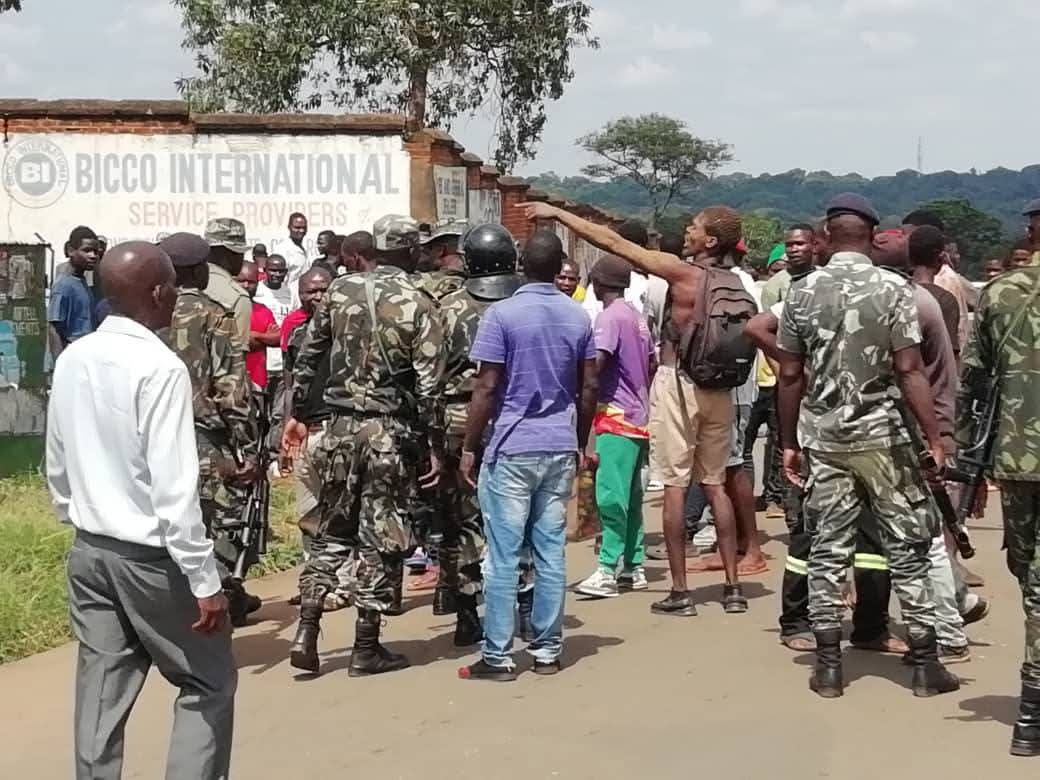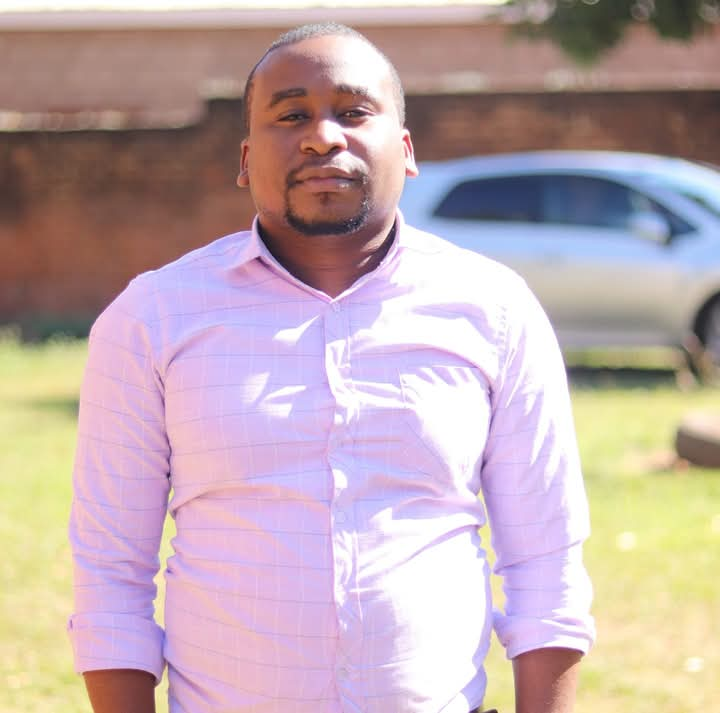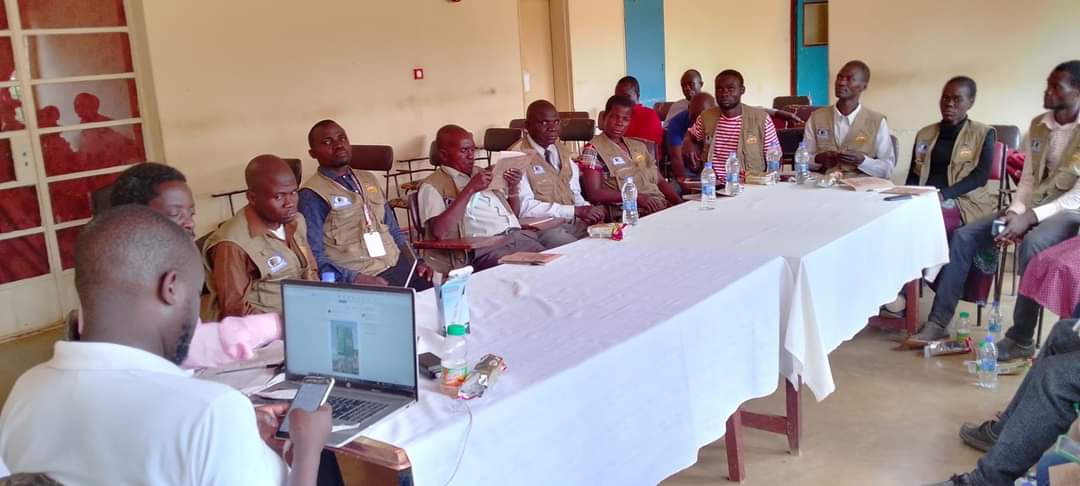By Burnett Munthali
Tensions flared in Lilongwe on Monday, November 25, 2024, when protesters demanding solutions to the persistent fuel shortages confronted thugs armed with clubs. The situation escalated when police deployed tear gas to disperse people who had gathered at the Lilongwe Community Ground.
The peaceful demonstration, organized by civil society organizations, saw hundreds of frustrated citizens take to the streets to demand government action on the fuel crisis. However, the event turned chaotic when a group of young men armed with clubs and other weapons, commonly referred to as Anyamata a Zikwanje, attempted to disrupt the march.
In a surprising turn, the demonstrators stood their ground, chanting and advancing towards the thugs, who eventually fled the scene. “We will not be intimidated by violence. This is our country, and we deserve better!” said one protester, visibly energized by the show of unity.
As the crowd grew larger at the Lilongwe Community Ground, tensions rose, prompting the Malawi Police Service to intervene. Officers fired tear gas to disperse the gathering, citing concerns over public safety.
Police spokesperson Peter Kalaya confirmed the action, stating, “The situation was getting out of hand, and we had to act to prevent further escalation. Our priority was to ensure no lives were lost.”
Several demonstrators were seen fleeing in different directions, while others regrouped in nearby areas to continue their march.
The protests were sparked by the worsening fuel shortages that have crippled the country in recent months. Long queues at filling stations have become a daily frustration for Malawians, and the situation has impacted businesses and households alike.
“We are tired of empty promises,” said one protester. “This fuel crisis is killing our economy, and we demand immediate solutions.”
Civil society organizations leading the protests condemned the use of violence by both the thugs and the police. In a statement, they called on authorities to respect citizens’ rights to peaceful assembly while urging the government to address the root cause of the crisis.
“We cannot solve problems through intimidation or force,” the statement read. “The government must prioritize the needs of its citizens and provide lasting solutions to the fuel crisis.”
Monday’s events highlight growing public frustration and a shift towards rejecting violence during demonstrations. While the confrontation between protesters and thugs marked a moment of resilience, the use of tear gas by police underscored the volatile nature of such gatherings.
As the government faces mounting pressure to resolve the fuel crisis, Malawians are sending a clear message: they will not remain silent in the face of adversity. Whether this protest leads to tangible change remains to be seen, but the unity displayed by the demonstrators offers a glimmer of hope for a more engaged and empowered citizenry.




